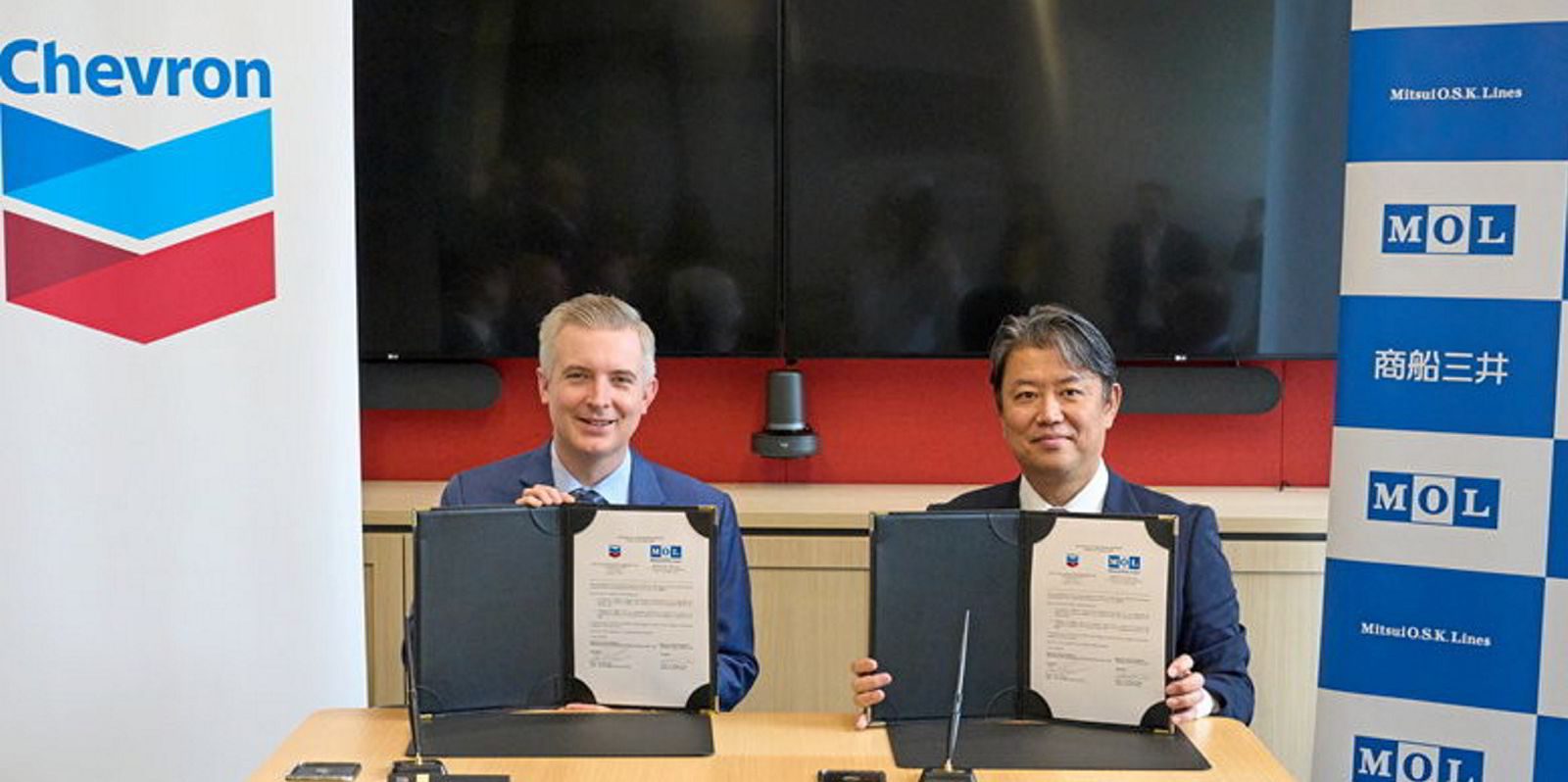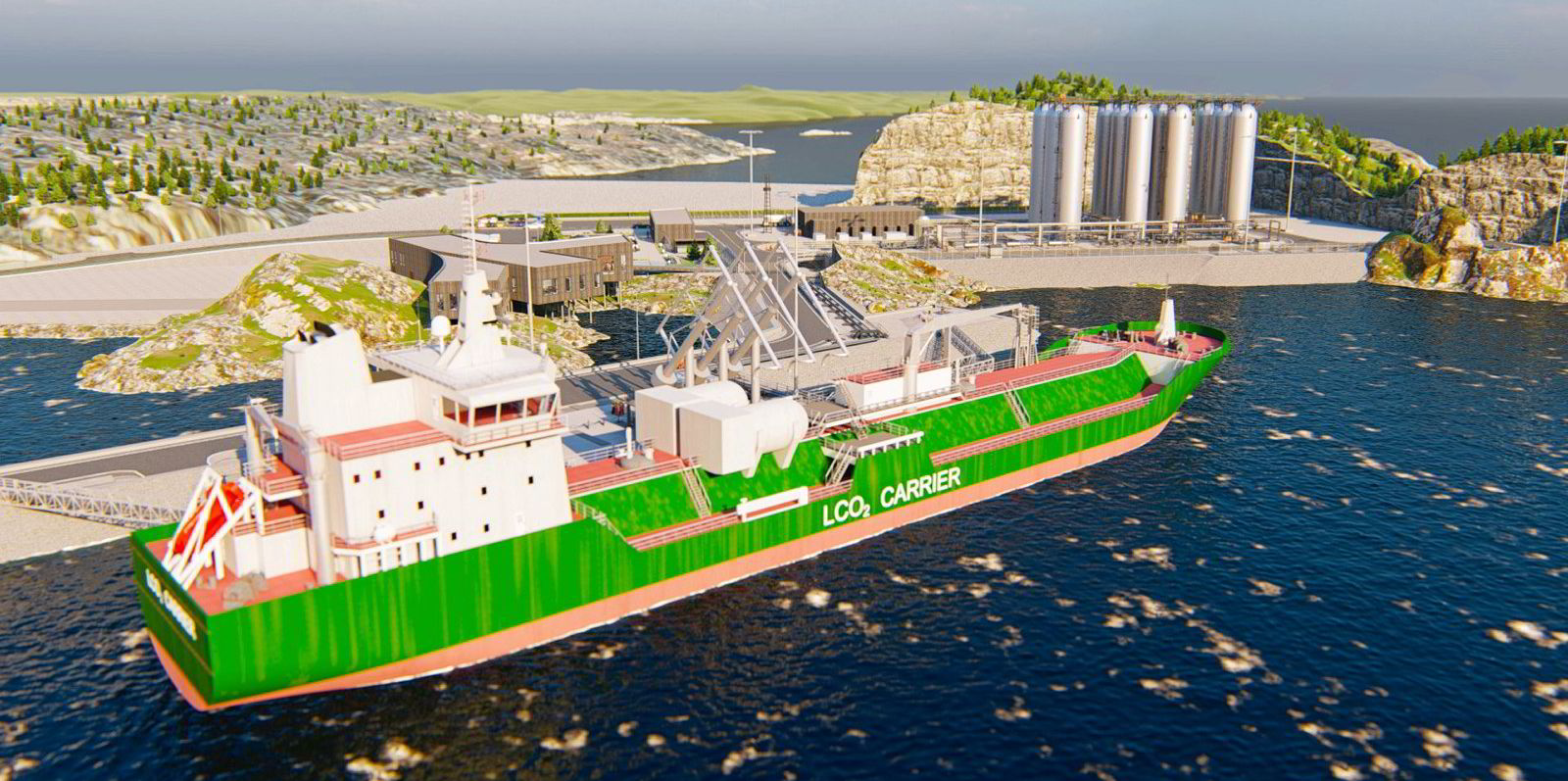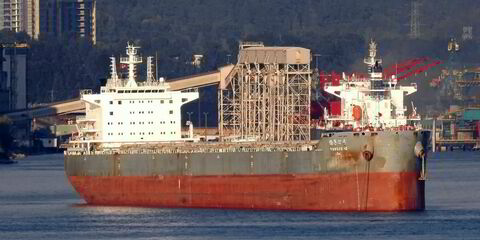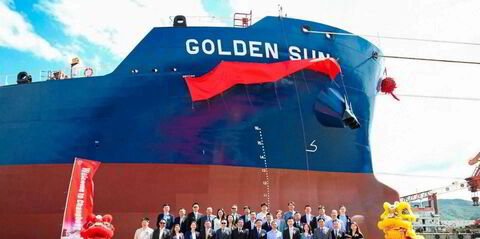Mitsui OSK Lines and US energy giant Chevron are to study the feasibility of shipping liquid CO2 from Singapore to Australia under a joint study agreement.
The two companies said they will explore the technical and commercial feasibility of initially transporting up to 2.5m tonnes per year of liquified CO2 by 2030.
The JSA, which was signed on Thursday, complements a recently announced consortium that aims to explore solutions for large-scale carbon capture, transport and storage of CO2 from Singapore.
That consortium has seen Chevron team up with Air Liquide, Keppel Infrastructure and Chinese state-run company PetroChina.
Mark Ross, president of Chevron Shipping Co, said: “Developing safe and reliable CO2 transportation services is a crucial step in developing large-scale carbon capture, utilisation, and storage (CCUS) solutions.”
Chris Powers, vice president of CCUS at Chevron New Energies, said the agreement with MOL was expected to advance the technical and commercial foundations for a regional approach to CCUS, which could provide progress towards the region’s net-zero ambitions.
“No single entity has all the solutions, but genuine collaboration can help us unlock opportunities as we advance our shared goal of a lower carbon future,” he said.
MOL executive officer Yasuchika Noma said the shipowner was excited to have an opportunity to collaborate with Chevron for opening up CCUS solutions in the Asia-Pacific region.
“We hope to expand our collaboration to wider areas of solutions for decarbonisation including CCUS and renewable energies globally,” he said.
In February this year, MOL signed a memorandum of understanding with Malaysia’s Petronas to study liquefied CO2 transportation for CCUS.
The expected growth of CCUS is leading shipowners to eye a lucrative trade in CO2.
Observers believe hundreds of such carriers will be needed in future to transport the greenhouse gas to storage sites.
Peter Livanos-backed EcoLog recently announced plans for a fleet of 60 CO2 carriers and a network of terminals.
In June, Hyundai Glovis announced it was teaming up with compatriot shipbuilder Hyundai Heavy Industries Group to develop a 74,000-cbm CO2 carrier.





